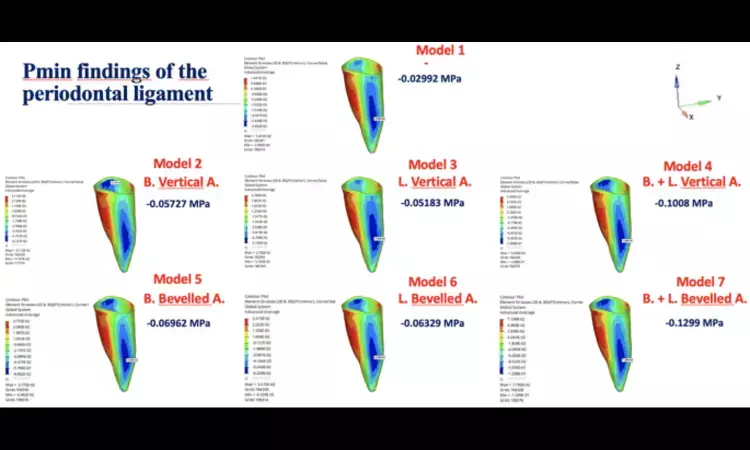- Home
- Medical news & Guidelines
- Anesthesiology
- Cardiology and CTVS
- Critical Care
- Dentistry
- Dermatology
- Diabetes and Endocrinology
- ENT
- Gastroenterology
- Medicine
- Nephrology
- Neurology
- Obstretics-Gynaecology
- Oncology
- Ophthalmology
- Orthopaedics
- Pediatrics-Neonatology
- Psychiatry
- Pulmonology
- Radiology
- Surgery
- Urology
- Laboratory Medicine
- Diet
- Nursing
- Paramedical
- Physiotherapy
- Health news
- Fact Check
- Bone Health Fact Check
- Brain Health Fact Check
- Cancer Related Fact Check
- Child Care Fact Check
- Dental and oral health fact check
- Diabetes and metabolic health fact check
- Diet and Nutrition Fact Check
- Eye and ENT Care Fact Check
- Fitness fact check
- Gut health fact check
- Heart health fact check
- Kidney health fact check
- Medical education fact check
- Men's health fact check
- Respiratory fact check
- Skin and hair care fact check
- Vaccine and Immunization fact check
- Women's health fact check
- AYUSH
- State News
- Andaman and Nicobar Islands
- Andhra Pradesh
- Arunachal Pradesh
- Assam
- Bihar
- Chandigarh
- Chattisgarh
- Dadra and Nagar Haveli
- Daman and Diu
- Delhi
- Goa
- Gujarat
- Haryana
- Himachal Pradesh
- Jammu & Kashmir
- Jharkhand
- Karnataka
- Kerala
- Ladakh
- Lakshadweep
- Madhya Pradesh
- Maharashtra
- Manipur
- Meghalaya
- Mizoram
- Nagaland
- Odisha
- Puducherry
- Punjab
- Rajasthan
- Sikkim
- Tamil Nadu
- Telangana
- Tripura
- Uttar Pradesh
- Uttrakhand
- West Bengal
- Medical Education
- Industry
Finite Attachments Show Superior Torque Control Over Vertical OMAT: Study

A new systematic review published in the Orthodontie Francaise journal by Nogueira and colleagues has reported that finite attachments (FAs) appear to offer superior torque and rotation control compared to vertical orthodontic mini-anchorage techniques (OMAT).
The review assessed available clinical and experimental studies comparing both systems and found that while OMAT can provide reliable anchorage, its effectiveness varies depending on design, patient factors, and force application. In contrast, finite attachments demonstrated more predictable results in controlling tooth movement, although the evidence remains limited due to the small number of high-quality studies available.
According to the authors, the mechanical advantage of finite attachments lies in their ability to distribute orthodontic forces more evenly and allow for finer adjustments in torque, which is essential in achieving precise tooth alignment. Vertical OMAT systems, though commonly used, often present challenges such as variable insertion angles and reduced control over the direction of applied forces. The review emphasized that these differences in biomechanics could influence long-term stability and treatment outcomes, particularly in complex orthodontic cases requiring precise rotational control. The researchers concluded that while current evidence suggests finite attachments provide better control over torque and rotation, further randomized controlled trials are necessary to establish standardized protocols and confirm these advantages. They also noted that treatment success depends on several factors including clinician expertise, patient compliance, and individual anatomical variations. The findings encourage orthodontists to consider finite attachments as a viable alternative to vertical OMAT, especially in cases where high precision is needed.
Keywords: finite attachments, orthodontic mini-anchorage techniques, torque control, rotation, orthodontic biomechanics, Orthodontie Française
Reference: Nogueira, A. M., Silva, R. T., & Dupont, J. (2025). Finite attachments versus vertical orthodontic mini-anchorage techniques: A systematic review of torque and rotation control. Orthodontie Française, 96(2), 115–124. https://doi.org/10.1016/j.orthfr.2025.02.006
Dr. Shravani Dali has completed her BDS from Pravara institute of medical sciences, loni. Following which she extensively worked in the healthcare sector for 2+ years. She has been actively involved in writing blogs in field of health and wellness. Currently she is pursuing her Masters of public health-health administration from Tata institute of social sciences. She can be contacted at editorial@medicaldialogues.in.


